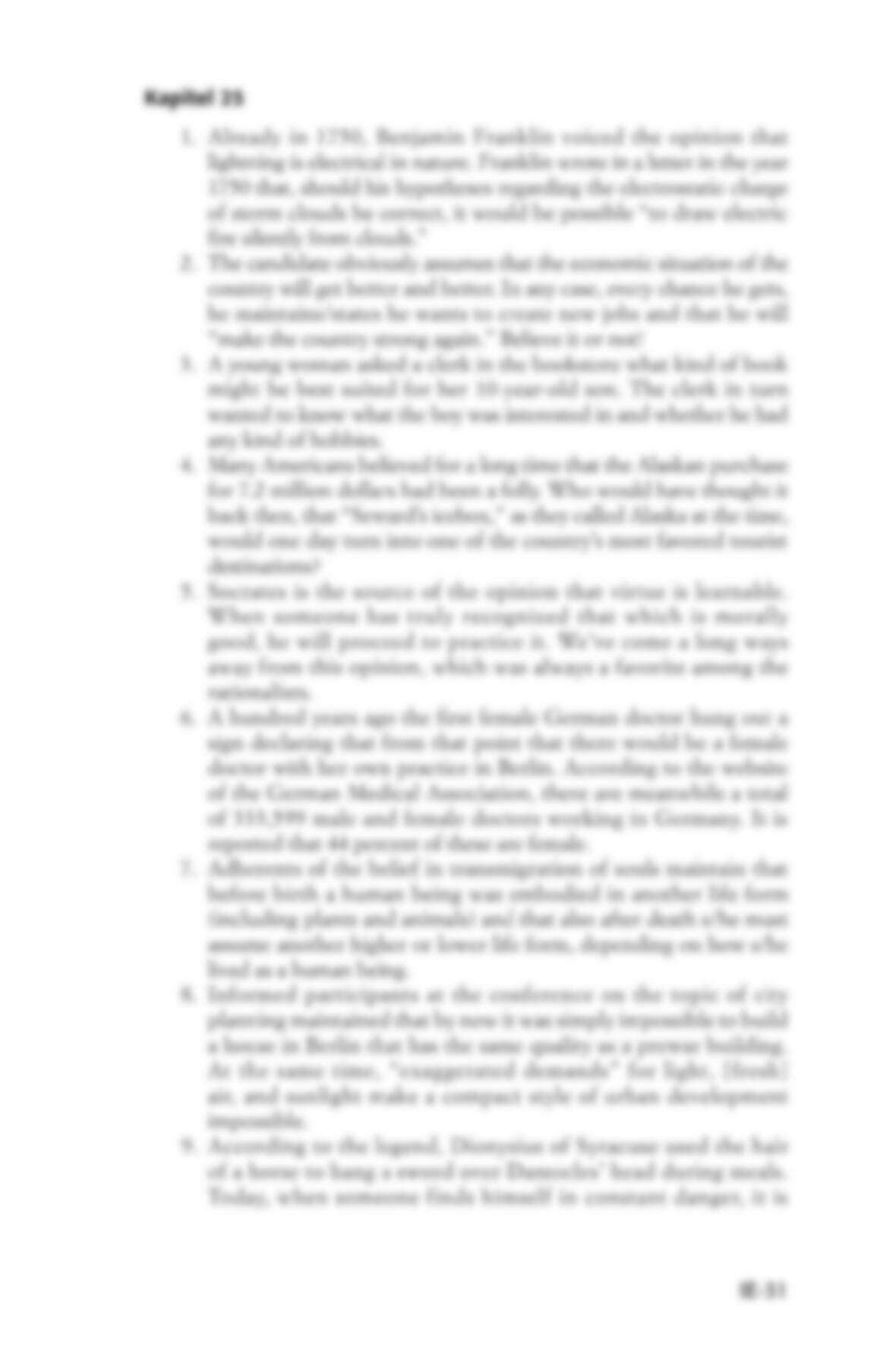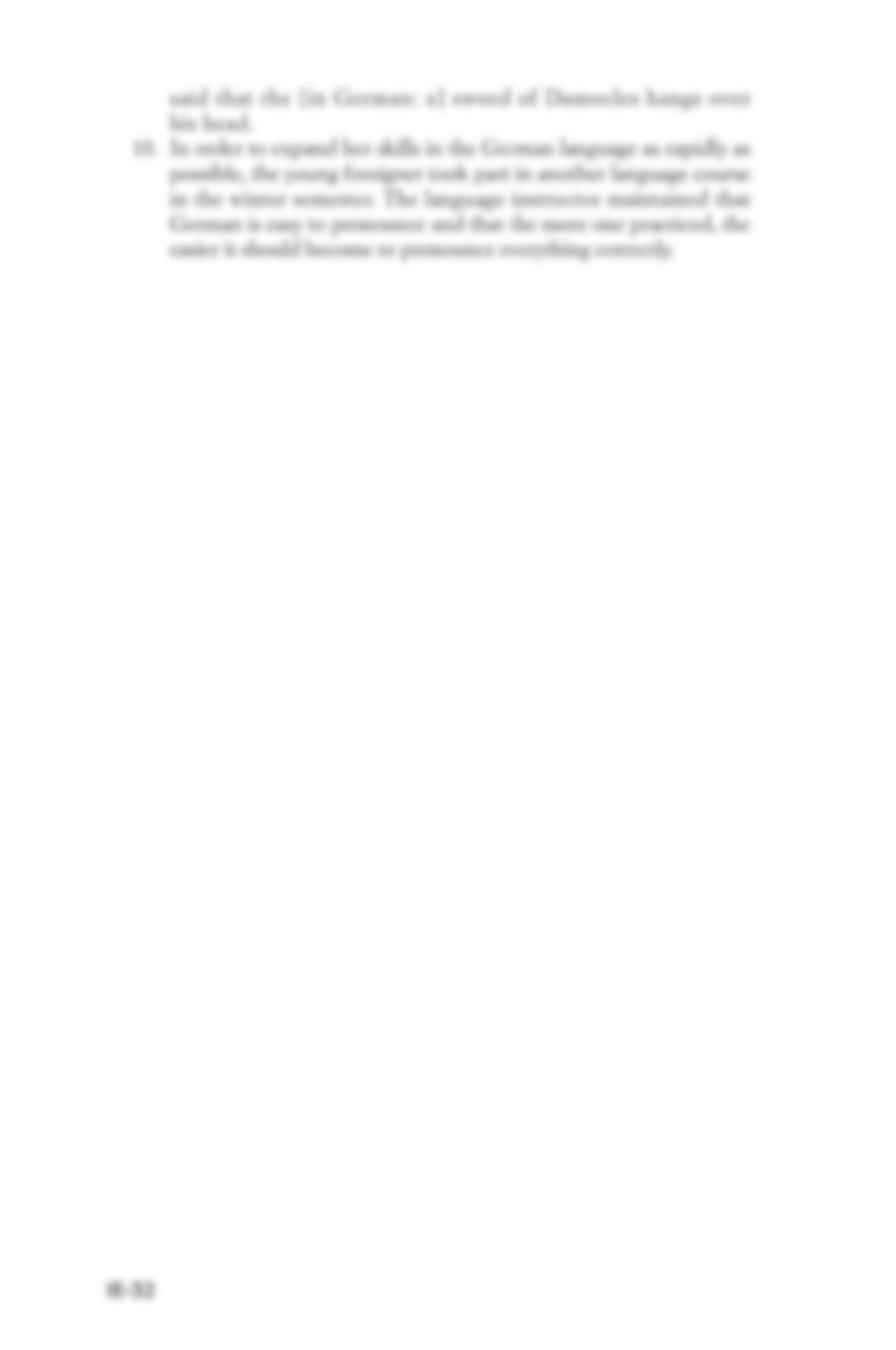IE-7
2. Suffrage rights for women in the USA began with the nineteenth
amendment to the constitution (August 1920). Only three months
after amending the law [also: after the amendment of the law], male
and female American voters elected William G. Harding as president.
3. My article in the professional journal Swiss Aids News describes our
new experimental results and their significance for AIDS research.
4. Your co-worker at the research center confirmed my results. He
and his colleagues investigated the T-cells’ reactions.
5. The Talmud contains the teachings and laws of the Jewish worship
service, laws regarding the lifestyle of the Jewish people, and
historical, geographic, and mathematic teachings.
6. In her book, Letters from Africa, the Danish author Tania Blixen
writes about the colonial period and describes the continent
through the eyes of a European. The critics find her descriptions of
the political situation extremely Eurocentric.
7. In present-day Africa there are many relatively new countries, for
example, Zimbabwe, Botswana, or Namibia. The name of the country
Namibia comes from the world’s oldest desert, the Namib. In the
colonial period the country was called “German South-West Africa.”
8. The book also contains a short description of the country’s linguistic
policies. The official language in Namibia is English, but there are
also numerous national languages, for example: German, Afrikaans,
OshiKwanyama, OshiNdonga, Khoekhoegowab, RuKwangali,
OtjiHerero, SiLozi, and !Kung.
9. We alter our environment not only through our actions, but also
through our inactions. The people of all the countries of the world
play crucial roles in the changes to our environment today.
10. The amount of precipitation in the mountains adds up to over a
thousand millimeters. The first snow of winter also falls there.
11. The website describes a biologist’s research on the cuckoo in
northern Germany. The birds breed here from mid May until the
beginning or middle of August. Then they leave the dunes on the
North Sea and migrate across the equator.
12. The cuckoo is a breeding parasite. The female bird lays its eggs in
nests of other birds. The cuckoo egg is larger than the other eggs
in the nest. Many birds notice the cuckoo egg and remove it. If,
however, it remains in the nest, the other little birdies haven’t a
chance. The young cuckoo throws the eggs of its foster parents out
of their nest, and they feed the adopted offspring until it flies away
from the nest.
Kapitel 5
1. The First Book of Moses begins “In the beginning God created the
heaven and the earth. And the earth was without form and void,
04266_fm_IE_ie1-ie32.indd 7 31/08/12 3:23 PM













































